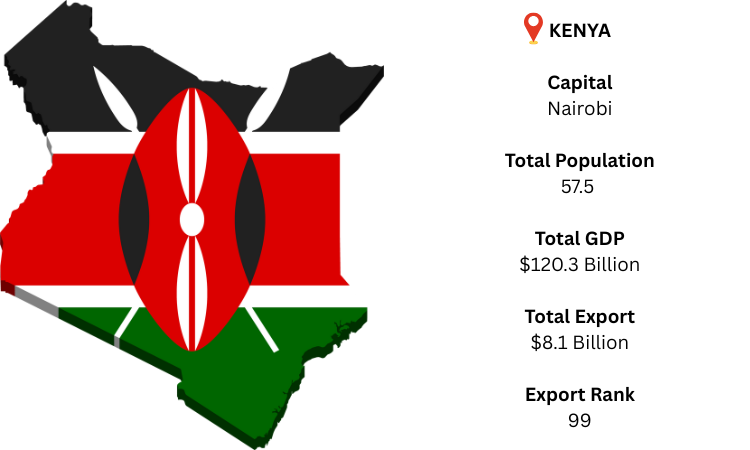Kenya is a country in East Africa that is strategically placed along the Indian Ocean. It has borders with South Sudan, Ethiopia, Tanzania, Uganda, and Somalia. Nairobi, the nation's capital, is a major regional center for commerce and logistics and the country's economic center. As per KENYA export data, Kenya's GDP is expected to reach USD 120.3 billion in 2024, with exports, services, tourism, and agriculture serving as the main growth engines.
According to the most recent trade figures, Kenya is the 99th largest exporter in the world. Based on export statistics for 2024, Uganda is Kenya's biggest importer. In 2024, Kenya's overall export value is projected to be USD 8.1 billion. Tea has long been a mainstay of the nation's economy and is its most exported commodity.
Kenya's export portfolio has become more varied as horticulture, clothing, coffee, and petroleum-related products have grown. According to KENYA trade data, Kenya's export competitiveness in Africa and international markets has increased due to regional trade agreements, logistical advancements made possible by the Standard Gauge Railway (SGR), and proximity to ports in the Indian Ocean.

